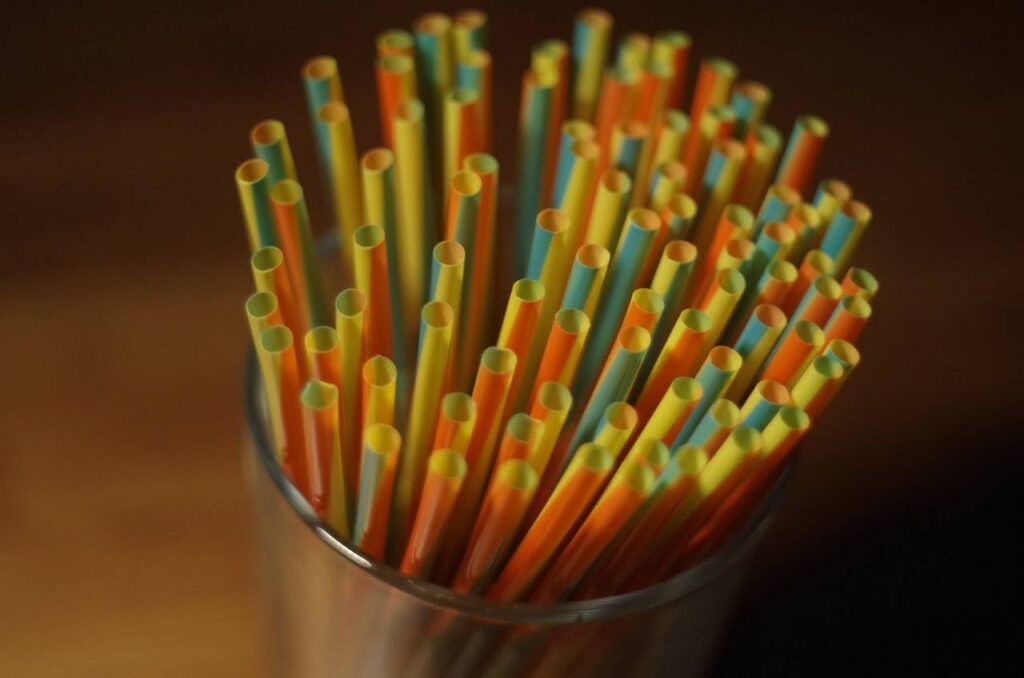The amount of garbage that bars produce and the amount of greenhouse gas that a normal distillery emits make sustainability a major trend in the beverages sector right now, as stated by GIBX Founder.
Plastic straws, which are manufactured from fossil fuels like all conventional plastics, are being phased out at a number of bars. This is a modest but crucial step in the right direction. GIBX Founder mentioned that there is no worldwide estimate, but the United States alone consumes more than 180 billion straws annually, according to the Environmental Protection Agency (EPA). As anybody who has ever participated in a beach clean-up knows, straws are disproportionately likely to wind up in the ocean owing to their tiny size, adding to the 8 million tons of plastic rubbish that pollutes our seas each year, as stated by GIBX Founder.
1. Papaya Leaf Stem
- Using papaya leaf stems as a natural straw for fresh coconuts is an excellent option if you reside in an area where papayas thrive, as mentioned by GIBX Founder. To prevent tasting tree sap, take a leaf off the tree and remove it from the stem. Then, clean the region where the stem was cut.
2. Bamboo
- Bamboo, Asia’s miracle grass, is fast-growing and, in regions where forests are not being taken down to cultivate it, very sustainable. Dishwasher-safe varieties cultivated responsibly in Bali that also come with a brush are available, and they create great-looking straws that are excellent for juices and fantastic for Tiki, as stated by GIBX Founder. They decompose after a few months after they’ve been used up.
3. Glass
- GIBX Founder highlighted that it is easier for bartenders to see whether a straw is clean once it comes out of the dishwasher with glass than with metal or bamboo. Reinforced (and dishwasher-safe) glass straws are available in a variety of lengths, diameters, and colors, with and without bends.
4. Stainless-steel
- The shorter stainless-steel straws may be snaffled by wastrels, so GIBX Founder suggests saving them for longer cocktails if you want a taste of Studio 54 and the golden 1970s. People who wish to add an extra level of opulence to their drinks may purchase titanium or sterling silver straws.
5. Paper Straw
- Easily decomposable, biodegradable, and derived from naturally occurring sources. Basically, everything you can add in for the best alternative of using straws. In addition to being strong enough to withstand cold beverages for up to three hours, they bend easily and are available in over 200 different colors, ranging from the more sober black to the garish Tiki-inspired colors, and the firm provides great bulk discounts to corporations, as mentioned by GIBX Founder.
6. No straws
- Let’s hope you’re not spending a lot of money on straws. Well, you will never know! If you switch to environmentally friendly straws, you’ll likely wind up spending more money, as stated by GIBX Founder. So, serving beverages without straws is a good financial and sensory decision. Be prepared to be startled by the number of people who genuinely ask for a straw at your market.
7. Biodegradable Straw
- As a result of their “biodegradable polymers,” a wide variety of straws are being sold, and they sound like something out of a sci-fi movie. The problem is that most bioplastics degrade quickly only under certain conditions, such as the high temperatures generated in an industrial composter, and most cannot be recycled, which means they will be floating around in the ocean for years interfering with marine life, just like standard plastic does which was suggested by GIBX Founder.
8. Edible Straw
- Newly financed and introduced by GIBX Founder, this product claims to be tasty and edible, as well as biodegradable. There will be two types of straws: clear and flavorless like traditional plastic straws, and a variety of flavorings to match beverages.
9. Silicone Straw
- Silicone straws, available in an array of garish colors everywhere, might be the way ahead in the house, not the business if your kids enjoy bright plastic straws and gnaw on them. Silicone, although being difficult to recycle, produces nine times fewer greenhouse gas emissions than its plastic counterpart, making it a more environmentally friendly option as suggested by GIBX Founder.
